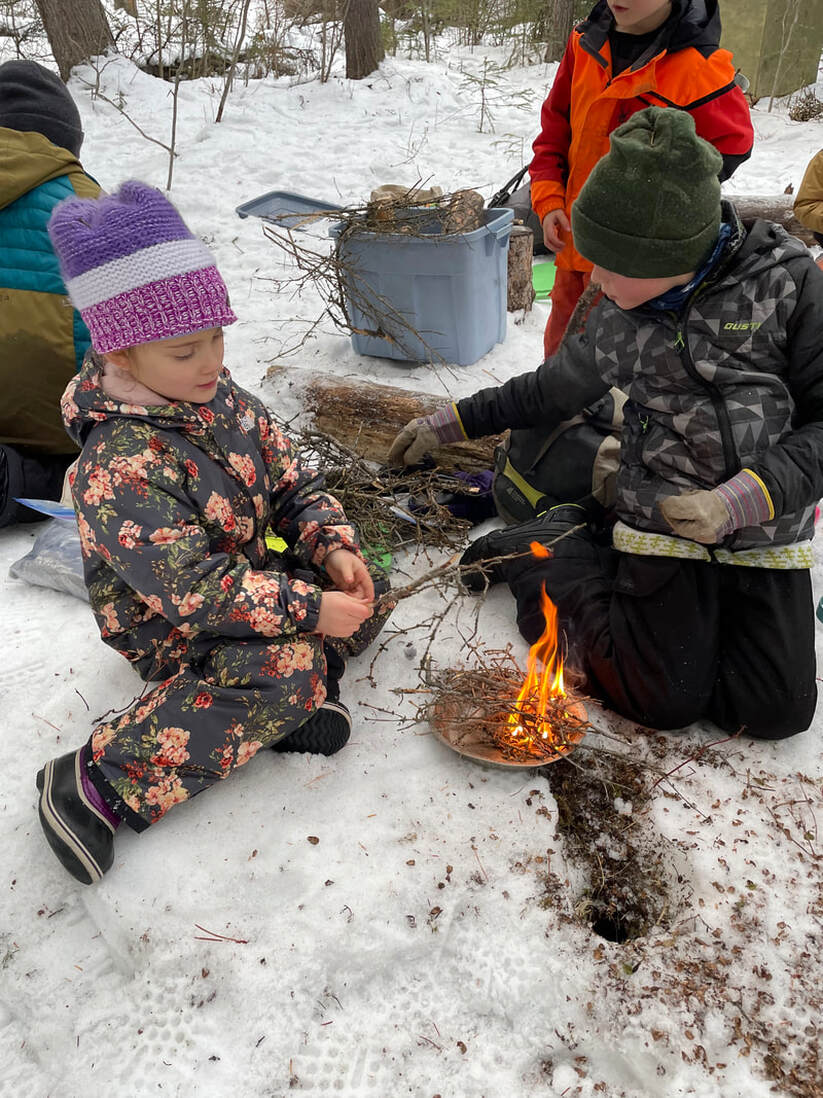 Higher, faster, harder. Dirtier, better, scarier. At this age, it seems the more risk, the better! Pushing their limits and the edges of their world (maybe our edges, too ;)) is one part of self-discovery, but why does it matter? It is likely no news to you that fire building, sliding on ice, jumping from heights and using sharp tools is all part of a regular day at Forest Play - and perhaps at home, too! We'd like to take this opportunity to flesh out just how important risky play is to healthy human development. When it comes to physical health, organized sports and activities are certainly important. However, children improve motor skill development, cardiorespiratory fitness and musculoskeletal fitness primarily through play - especially when it goes beyond their comfort level. At the same time, children engaging in play beyond their existing skillset (e.g. sliding faster down a hill or climbing higher) are improving their emotional health as they assess the source of their fear and develop the skills to overcome these fears. Often accompanied by a conversation with a leader, potentially dangerous activities are assessed to understand that a risk becomes a hazard when the activity extends too far beyond our capabilities. For example, if a child is climbing a tree or wanting to slide faster, we ask, "what would happen if you fell or crashed? Would you get a scratch, bumps and bruises or broken bones? How do you feel about the consequences?" (thanks to local mountaineer, Will Gadd, for helping us develop this language framework). The contemplative look we often see in response to these questions is self-awareness in the making. Checking in with these questions creates a moment for the child to assess and define their own level of risk tolerance, when they're exceeding it and when they might get hurt. Developing this level of self-awareness takes time, but gradually children who regularly engage in self-directed risky play are more likely to develop as self-sufficient, confident, resilient and creative humans. Whether on the ski hills, trails or navigating difficulties, we hope this knowledge helps you and your family adapt to life's edges! Comments are closed.
|
Why Stories?It is said that stories live on the wind and those who are aware and whose senses are alert, can catch the story that needs to be told in that moment. Archives
February 2022
Categories |
Proudly powered by Weebly

 RSS Feed
RSS Feed